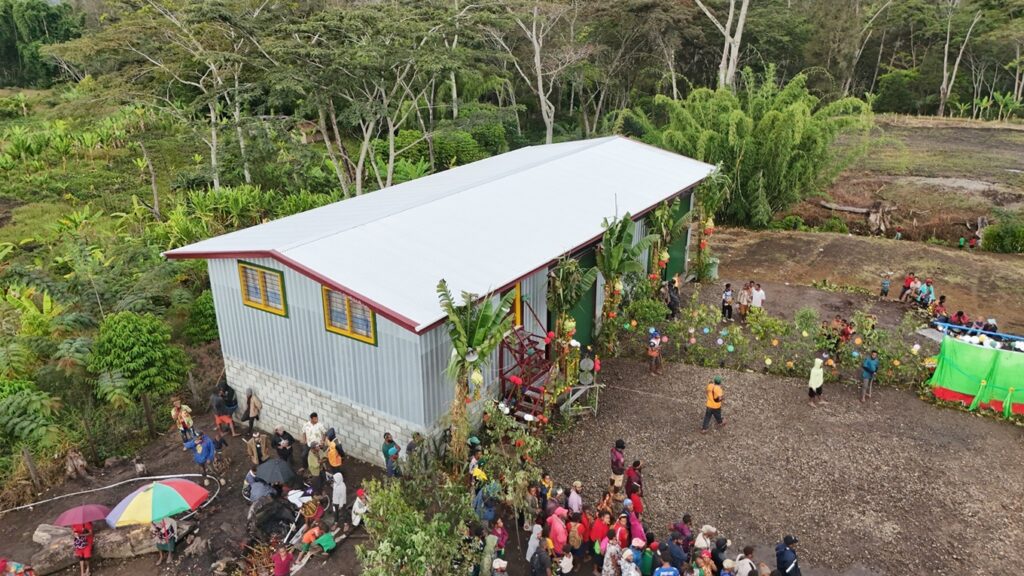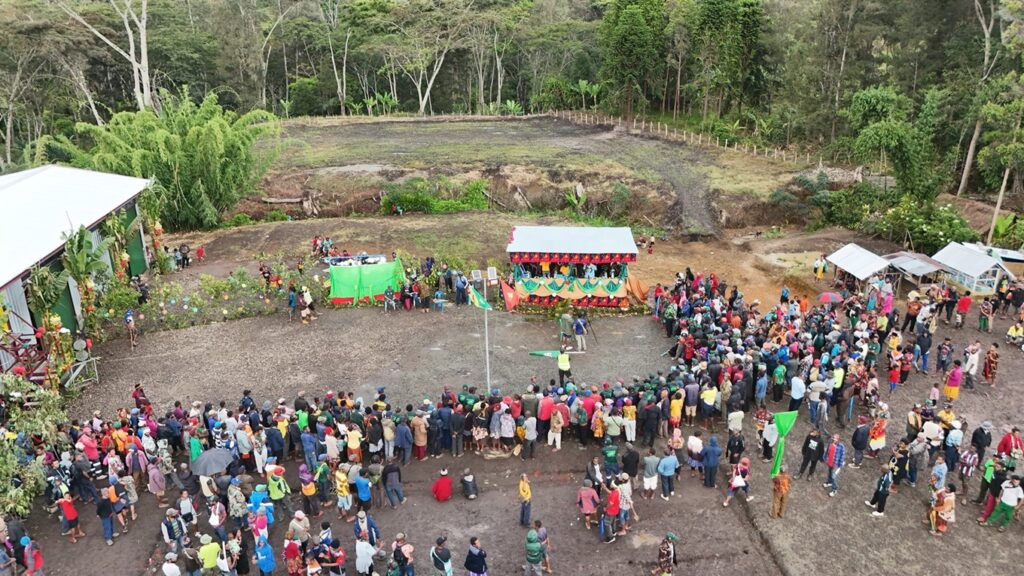Kudjip, Jiwaka, Wednesday, May 14, 2025 – In a significant milestone for Papua New Guinea’s coffee sector, the Kore Mani coffee storage and processing shed was officially opened on May 14, 2025, in Kudjip, Jiwaka Province, marking a new chapter in the country’s pursuit of quality-driven, locally managed coffee exports.
Funded through a K855,000 investment by the PNG Government under the Coffee Industry Corporation Ltd (CICL) – PNG Agriculture Commercialization and Diversification (PACD) Project, with support from the World Bank, the facility is designed to specialise in honey processed coffee — a premium coffee that fetches higher prices in international markets.
Konts Yegin of Kore Mani Organic Coffee is the Lead Partner with the CICL-PACD Project, supporting 300 farmers under its umbrella. The project is benefitting from K855,100 in funding support following the signing of a formal Partnership Agreement, aimed at boosting the coffee industry in Jiwaka and empowering local producers.
The PACD Project, funded by the PNG Government with World Bank support, is designed to:
• Increase production and market access
• Improve quality and transparency
• Create income generation opportunities
• Boost productivity and reduce post-harvest losses
Speaking at the ceremony, CIC PACD Project Manager Mr Potaisa Hombunaka called the investment a symbol of change and empowerment, especially as the country prepares to celebrate its 50th Independence Anniversary this year.
“This shed is more than a building—it is a platform for change,” Mr Hombunaka said. “We must stop doing things the same way and expecting different results. The time for transformation is now.”

Mr Hombunaka noted that the PACD Project was helping to address structural imbalances in PNG’s coffee export landscape. Currently, 90% of exporters are locally owned, controlling just 20% of total coffee exports, while 10% are multinationals controlling 80% of exports.
“We need to reverse this,” he stressed. “Our vision is to see containers of coffee exported directly from villages. This project is not just about infrastructure—it’s about building confidence, capacity, and control.”
He added that through the project, local farmers are already seeing higher returns, with farm-gate prices rising significantly with improved processing and quality.

World Bank PACD Team Leader Mr Allan Oliver also addressed the gathering, describing the shed as a key building block in a larger development vision.
“This project is about bringing the basics for growing good coffee and creating happy families—seedlings, with establishment of infrastructures, and access to markets,” Mr Oliver said. “But this is just the beginning. The rest of the journey is yours—to build businesses, find rewarding markets, and prosper as skilled farmers.”
He emphasised the project’s spirit of partnership—between farmers, lead partners, the government, CICL, the World Bank, and, importantly, within families.
“There is one partnership that is very dear to me—the one within families. Husband and wife working together make the family stronger. The gender training we’ve included is about strengthening this bond to build better livelihoods and raise happy, healthy children,” Mr Oliver added.
He also reminded attendees that the PACD Project will conclude at the end of this year and encouraged all stakeholders to prepare for the future.
“It’s important you think now—while the project is still here—about how you will continue to grow and sustain your coffee businesses after the project ends,” he said. “The road ahead must be clear, and you must be ready to walk it confidently.”
The Kore Mani shed is expected to play a central role in scaling up production and quality assurance of honey processed coffee, known for its fruity flavour and eco-friendly post-harvest technique.
The opening was witnessed by World Bank, National and Provincial Government and CIC officials, local leaders, and coffee-growing households who welcomed the opportunity to connect their communities to international specialty coffee markets.
As Papua New Guinea approaches its 50th year of independence, the PACD Project’s model—of building infrastructure, skills, and partnerships—offers a replicable pathway for inclusive rural development and national economic transformation.
###